Bearing witness to truth, The Tempest is invested in poetry that attempts to reveal human pain through the art of words. Each poem is powerful, but the book’s strength emerges from its collective voice: different political conflicts, cultures, genders, ages, races—one shared human narrative. As we follow these survivors into their past and present lives we learn that poetry was the gift that restored.
The book’s wanderings in and out of forms—erasure poetry, free verse, prose poetry, haiku, tanka, haibun—signal its approach to some important preoccupations. The collection includes tales of love and rage—from displacement and homecoming, Budapest and its lilac hills above the Danube, where bombs fall, where at a train station cattle wagons wait for Jews to be deported to Auschwitz, where her family lives in Pirka, a Bavarian war refugee settlement— to immigrating to Montreal’s ice and snow, founding a family, fleeing an abusive marriage, and becoming an activist and taking a stand against domestic violence.
Like the figure she describes in her ekphrastic poem “Clotho” as “Ensnared in long tentacles of hair, skeletal, toothless, chiseled in white marble…” Martonfi’s The Tempest has hewn her own spare lines to recast her book’s obsession with the politics, violences, and musics of the oral.
”Ambitious in ideas and form, the rhythm of Ilona Martonfi’s poetry shifts effortlessly between the soothing hum of the natural world and the energetic buzz of urban life. Hers is a powerfully original voice that keenly examines animal and human worlds, capturing their beauty and tragedy in equal measure. I was utterly captivated by this new collection.”
—Darren Richard Carlaw, Editor, StepAway Magazine
”Ilona Martonfi’s poems in The Tempest are exquisitely crafted. Frequently, in constellations of images without verbs, her poems keenly reflect the human condition. They are a visual delight but inevitably they incite the reader to contemplate the vexing issues of human complexity, vulnerability and cruelty.”
—H. Nigel Thomas, award-winning writer of fiction, poetry and essays
”The poems in The Tempest resonate with the haunting images of wreckage and the space on the page that allows breath and that which would push through; persist. A pear tree, bog cranberries, all signs of life amid amnesia, and devastated landscapes. Concise and dense. Elegiac and sombre; the poems capture the intricate voices of their resolute speakers, and rather than complain they “would go and gather stars”. A beautiful collection of snapshots into the aftermath and the life that there remains despite everything.”
—Larissa Andrusyshyn, author of the two poetry collections Mammoth and Proof
”Nagasaki, Dachau, Chernobyl: Ilona Martonfi testifies to both terrible events in history as well as various moments in her past, such as her childhood after World War II, her sister’s and brother’s deaths, her travels in other countries. In this moving collection of poetry, love and hope stand up to pain and desolation. The threads of memory weaved in The Tempest reach us deeply with their intelligence and their sensibility.”
—Louise Dupré, poet and novelist
”Words can be weapons, and Ilona Martonfi’s The Tempest isn’t afraid to wield them with a delicate and certain hand. It is difficult to put into words, the power of her work though I often find myself needing to take a long breath after each poem. The words resonant innate truths through the lens of other, mysterious worlds. And yet they’re more than that. Martonfi’s poetry reaches out of the page and demands the reader bear witness to the void, the sublime darkness. Deep trauma is interwoven with seemingly small and domestic moments in time and history that speak to the emotional landscape that underlies reality and the essence of the human experience.”
—Simone Pitot, singer, multi-instrumentalist and composer
LISTEN! Ilona Martonfi reads “Pupa” and “Dandelion Snow” (from her new collection The Tempest)
Ilona Martonfi is a Montreal poet born in Budapest. She is a writer, editor, creative writing teacher, and founder of the writing group, Rue Towers Writers. She is the author of the poetry books, Blue Poppy (2009), Black Grass (2012), The Snow Kimono (2015), and Salt Bride (2019), as well as seven chapbooks, Visiting the Ridge, Charivari, Magda, Adagio, Mud, Moth and Black Rain. Ilona is Founder and Literary Curator of The Yellow Door and Visual Arts Centre Reading Series and Argo Bookshop’s Reading Series. She is a recipient of the QWF 2010 Community Award. Ilona has published extensively in print and online literary publications. She was a Finalist for the 2007 Quebec Writing Competition. Her story, “My Daughter, Marisa,” was published in CBC Story Anthology III, In Other Words: New English Writing from Quebec (2008), and Ilona’s “Stories of Belonging” was shortlisted for Canada Writes in the adult category (2014). She was also a StepAway Magazine nominee for the 2018 Pushcart Prize for the poem “Dachau Visit on a Rainy Day”. The Tempest is her fifth poetry collection.
BESTIARY
At night we morph into paraboles of light.
Us, radioactive albino dogs. Wild boar. Wolves.
As if acting in mime:
concrete sarcophagus encasing reactor 4.
Talks to us of irradiation on the skin
chromosomal aberrations. The cemeteries,
we reproach
old wooden crosses.
West of Pripyat river
forests are not decaying
bog cranberries. Peat moors,
the bruises of summer skies
we watch you drive to the pear trees
still holding the casket
your house and your garden
and you pick the fruit.
Bumblebees buzzing about
“Babusya look, poppies”
otherworldly blue lambs
and us bleating creatures.
Us, Chernobyl bestiary.
SKIN
Sometimes, can you explain to a bittern what war is? Now it<
gets closer as if it has a secret to tell. Clucks and booms: Huu bwong.
Unk-er-lunk. Huu huu huu huu. Sometimes, for a while you feel free.
Then you hear teacher’s voice: “Ilka, come and sit back here on this<
bench!” These boglands you can’t understand. This watercolour of
Pirka. Wheat fields. Reeds and sedges, wild irises. The cotton rag
paper, wrinkled from water, as if it was skin. Round goat hairbrushes.
Sometimes, can you explain to a bittern what a song is? Why you play
marbles. Pig-tailed nine year old. Sometimes, you can’t understand
why fourth grade teacher is touching you. Why white horses come in
your dreams. That snort and nicker and goad the rains. Wet birch leaves
in a bomb crater. A waning sickle moon. The creek. Why the iris
is írisz in your mother tongue.
THE FACILITY
The quiet vigil beside a robotic body. Eldest daughter in the psychiatric
ward. Still I don’t tell her about the spotted T-shirt, stale pizza in the
refrigerator. Acrid odour of cat litter. Flat-faced white Persian cat. Her
possessions. The crinolines in the style of the fifties from her teens. I
remember music blasting from a boombox. Unfinished canvases. Boar
bristle brushes, tubes of acrylic. The skips in language. Monosyllables
catching the moon through glass. I created a shadow box. I went to cut
lilacs in the walled garden. Used a double key to get back in. I cut an old
cloth-bound book and put the blossoms into the book. By night I
compiled a dictionary: spaced out. Filthy. Lazy. Age thirty-three. As she
battles a chronic immune system disease, pulmonary sarcoidosis. Fatigue.
Dry cough. Melancholic depression. Hum of traffic on Decarie
Boulevard near Monkland Avenue. Codes for a locked door. Daughter
admitted for psychotic episode.
FRIDA KAHLO’S CASA AZUL IN COYOACÁN
A headless pre-Columbian ceramic urn
in the shape of a toad-frog
displaying my ashes
here and its cobalt-blue
plaster corset which held me in place
its embedded mirrors, its collages
still naked in their want
I am a mestiza
anti-colonialist, the exotic “other”
long ruffled Tehuana skirts, huipil blouses
turquoise Aztec necklaces
gardenia blossoms in my braids.
Always the now
I paint my Diego
the other day on the train
at my side una anciana, an old woman.
Do you like night? she says.
El primer beso?
What gifts were you given, and curses? she says.
I liked the unibrow and eyes.
But fitted with a wooden leg
where these androgynous vines and roots
that wrapped around naïve folk art
magenta, most alive, the oldest shade.
Much more besides,
my Casa Azul on Calle Londres in Coyoacán
the name from Nahuatl “place of coyotes”
cobblestone streets, small plazas,
a borough of Mexico City
fiestas with mezcal, mole poblano tamales
my pain attached to a fetus
tequila and morphine
the days, I sat in this walled courtyard,
a menagerie of macaw parrots
hairless Xoloitzcuintle dogs, a fawn
two spider monkeys at my side
prickly pear, yucca, and canna lily
the pomegranate trees.
PUPA
No, the dolls whisper.
Patched monologues. Skip rope chants. Playing tag. Playing marbles. I
came here one year ago. Bombed stone houses. Village of refugees.
I only think about the dolls. I made one looking like my mother.
Slipping under my skin. In the mirror I see her: she is there, in my body.
Writing on the blackboard. White chalk. Oak desks and benches.
Teacher touching her above the white ribbed knee sock.
Even when I thought I was free of her. These lands she couldn’t
understand. Moosgraben creek flowing through Pirka. Nunnery
cemetery. Hooded with a caul. No, the dolls whisper.
blue butterfly
the moon
and milkweed scent
This epub and pdf are defined with accessible structural markup. This book contains various accessibility features such as alternative text for images, table of contents, page-list landmark, reading order, Structural Navigation, and semantic structure. This publication conforms to WCAG 2.0 Level AA. There is a page list and embedded page-breaks within this EPUB to aid in the ability to go to a specific page. EPUB Accessibility Specification 1.0 AA
The EPUB Publication meets all accessibility requirements and achieves [WCAG 2.0] Level AA conformance.
- Table of contents navigation
- Reading order
- Short alternative descriptions
- Print-equivalent page numbering

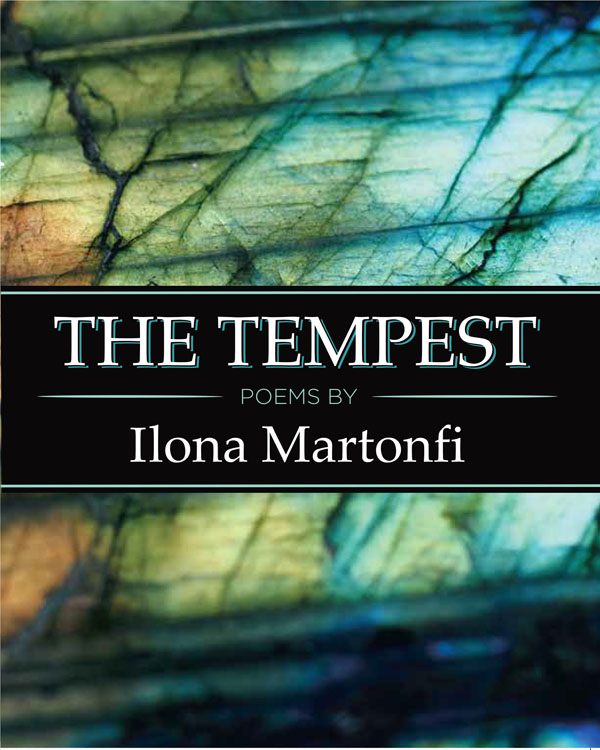

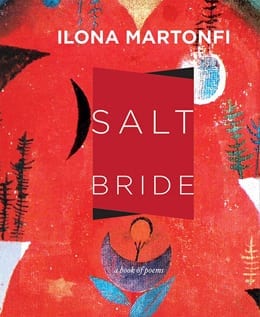

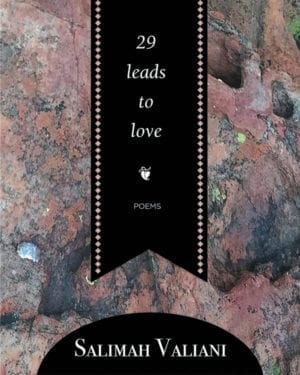
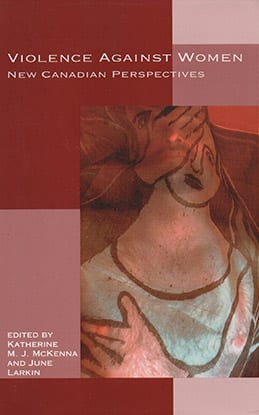
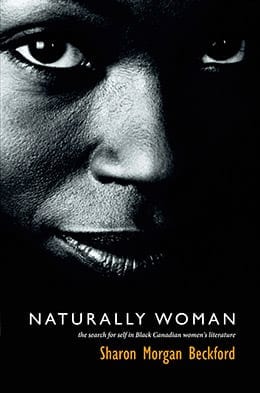
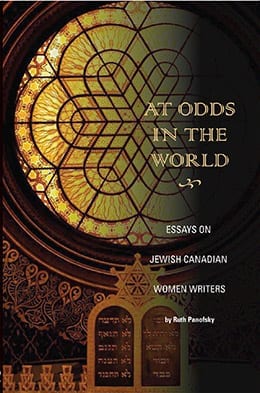
Inanna Admin –
The Tempest by Ilona Martonfi
reviewed by Alison Manley
The Miramichi Reader – November 6, 2022
https://miramichireader.ca/2022/11/the-tempest-by-ilona-martonfi/
Dancing through disasters, myths and legends, art and artists, as well as personal reflections on self and family history, Ilona Martonfi’s collection, The Tempest, is incredibly deep and also incredibly spare. Martonfi uses as few words as possible in many of the poems in this collection, leaving you to build your images from what she leaves on the page – and what words Martonfi gives you are so carefully, deliberately chosen that the art is twice beautiful. Once for the sheer brilliance of language use, and a second time for the beauty of the images evoked by her brief words. The Tempest is not for the faint of heart, or anyone not ready to be pushed and challenged in their engagement of poetry; I like to recommend more accessible poetry normally, but The Tempest defies me, quite neatly. It’s deceptively bold and vivid collection. My only regret is that the volume is so short, though it certainly provides ease in being able to reread it over and over again, as I already want to, knowing that I’ll find something different in it each time I go back to it.
Martonfi’s collection is divided up into five sections, each with a loose and connecting theme. The first section starts with a striking series of poems dealing with disasters and war: the ghettoes and concentration camps of Nazi Germany, the bombed areas of Japan in WWII, Chernobyl, and the US-Mexico border. The later sections have other threads connecting them; the second section weaves in a good deal of floral imagery, while the third section features myths and faraway locales. While I enjoyed poems throughout the collection, I was struck most by the ones in the first section especially, those treating the different landscapes marked by disaster with great tenderness and sadness. However, my favourite poem of the collection was in the fourth section, “Lockdown.” It’s a timeless poem, which could be set in our current pandemic times, or a long ago plague, capturing the isolation and the difficulty of living through a historical moment.
The Tempest is a sharp collection of poetry, thoroughly modern in its approach and subject matter, as well as its use of wildly different forms of poetry to share the many stories it tells. Anyone who is willing to take the challenge of reading it will be rewarded by the beautiful language and imagery, and find a good deal within its pages.
Inanna Admin –
The Tempest by Ilona Martonfi
reviewed by Robyn Fadden
The Montreal Review of Books – March 16, 2023
https://mtlreviewofbooks.ca/reviews/the-tempest-ilona-martonfi/
Great poetry is always about more than oneself, even if its gaze seems insular at first. The world’s conflicts and their repercussions, from within one’s home to the international stage, are constant, as is the world’s beauty – poetry often enters the spaces between. In Ilona Martonfi’s The Tempest, truths are uncovered, revealing tendrils and roots that reach far outside one life. Martonfi’s astute and unpredictable poetry forges into painful histories and adamant renewals, laying bare an unsettling narrative that should be mandatory reading.
somehow we smuggled out
the common secret of violence
distorting that unreality
I will go now, go
grey the colour of hope.
The Tempest roams from Martonfi’s birthplace in Budapest, to a refugee camp in Bavaria during World War II, to earthquakes in Japan, to a life in Montreal that is anything but staid and domestic. Exile and survival meet love and belonging through shared family memories and more widely cultural remembrance, all in motion together.
“I’m sorry,” you say,
choose ugliness
see the grey streets
and bombed-out houses
mirrored in chalk hills
unfold the reed grasses
the narrow spaces between.
Recurring dreams in which
your mother and you sit in a cellar
to unremember
summer flowers crying
shot in black and white.
Amid all these moments and memories endures art, the desire for freedom of artistic expression and the balm of poetry, as a writer and a reader. A seemingly strange choice and mysterious way to make sense of anything, but poetry’s an art that works, excavating the world to reveal what it’s really made of.
I hear a small blackwater stream
quarrelling with metaphor.
Wetness the shape of water on skin.
The bodies we speak of inhabiting.